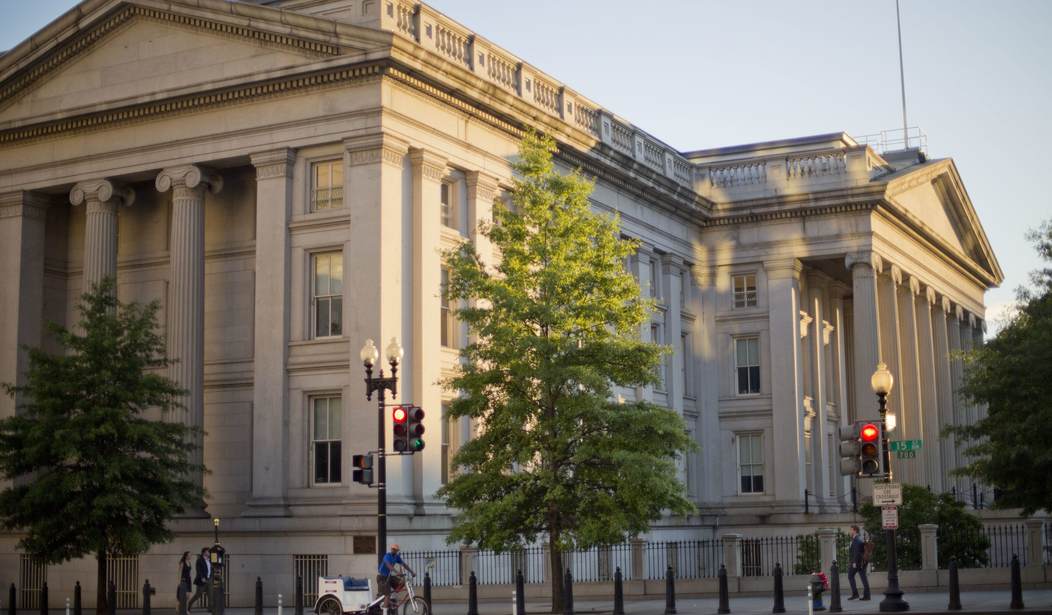WASHINGTON – While acknowledging an extended period of economic stability, a high-ranking Treasury Department official on Wednesday discussed the administration’s continued effort in rolling back post-2008 financial regulations and exploring preventive measures to head off the next financial crisis.
Earlier this month, the Federal Reserve announced the decision to raise the short-term interest rate from 1 percent to 1.25 percent, the third quarterly increase in a row and a continued signal of confidence in the U.S. economy.
The Labor Department continues to release positive reports, as well, with news this week that fewer than 300,000 Americans (241,000) applied for unemployment benefits for the 120th consecutive week, a streak last topped in the early 1970s.
Amid this period of stability, the administration is exploring ways to roll back financial regulatory policies the Obama administration put in place after the 2008 financial collapse, most notably key reversals to the Dodd-Frank Wall Street Reform and Consumer Protection Act.
The House in early June approved the Financial Choice Act, a piece of legislation that would reverse course on many Dodd-Frank reforms, including the removal of liquidation authority measures in favor of adding Chapter 14 bankruptcy options for large financial institutions. Republicans have vowed to end the era of “too big to fail,” while Democrats have called the legislation the “Wrong Choice Act” and a return to the irresponsible Wall Street practices that led to the financial meltdown. The Dodd-Frank measures face stiff opposition in the Senate, however, as Republicans do not have the 60 votes needed to advance the reforms.
Following an executive order from President Trump in February, the Treasury Department in June released its first significant report laying out the White House’s plans to scale back what it sees as burdensome regulations that stifle economic growth. Two more reports – on U.S. capital markets and asset managers – are expected in mid-September.
Craig Phillips, counselor to Treasury Secretary Steve Mnuchin, said on Wednesday that the next financial downturn could have markedly different sources than the 2008 crisis, so the administration is taking a systematic look at preventive measures, while also reversing course on a regulatory bar that was heightened “inappropriately” after the collapse.
“Should our regulatory focus be on trying to pick the company that’s causing the problem, or look at the systematic risk that’s there and have better regulation?” Phillips asked during a Financial Services Roundtable discussion. “The bias is that the next crisis comes from different sources than the last crisis, and we have to manage the regulatory risks accordingly, but I think now you have some balance in the economic conditions around the world and generally balance in the financial system and the ability of these financial systems to attract capital, equity capital. And that capital is critical to actually support its growth. So I’d say we’re fortunate to be in a period of some relative stability around the world and our U.S. companies are doing quite well competitively.”
Republicans on the House Financial Services Committee praised the Treasury Department’s report released in June, saying that it mirrors much of what is found in the Financial Choice Act.
“Our economy, our financial services industry – we need to be able to get some things changed. And if the administration is willing to lead on these things, we should be willing to work with them and figure out how we can get a lot of this done,” committee member Rep. Blaine Luetkemeyer (R-Mo.) said Wednesday.
Key reforms proposed for Dodd-Frank include significant changes to the Consumer Financial Protection Bureau, an organization the Obama administration deployed to police deceitful financial practices in the aftermath of the Great Recession. The office has won about $12 billion from financial institutions for 29 million consumers since 2011, and has served as an advocate for veterans, who are commonly scammed. The Choice Act would subject the office to the congressional appropriations process and allow the president to remove the director at will. Opponents say the Choice Act would effectively dismantle the agency. Luetkemeyer said the proposed changes would rein in an agency that has too much unchecked discretion over the financial sector.
“They refuse to define the word ‘abusive,’ and as a result, anything they see out there, they classify as abusive, whether it is or not. They make the definition up as they go,” he said. “There’s no other agency in federal government that doesn’t have checks and balances on it, except the CFPB.”









Join the conversation as a VIP Member